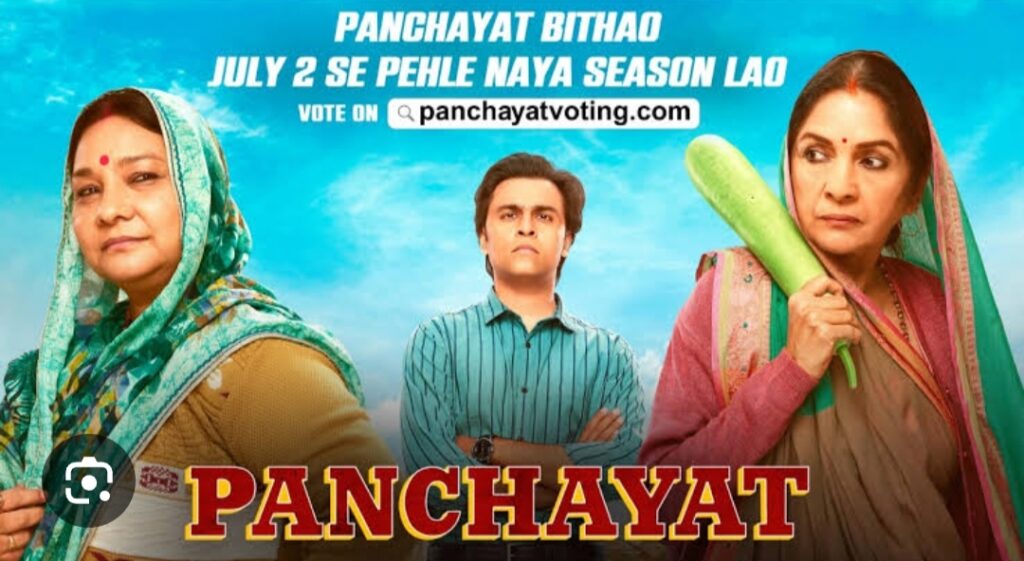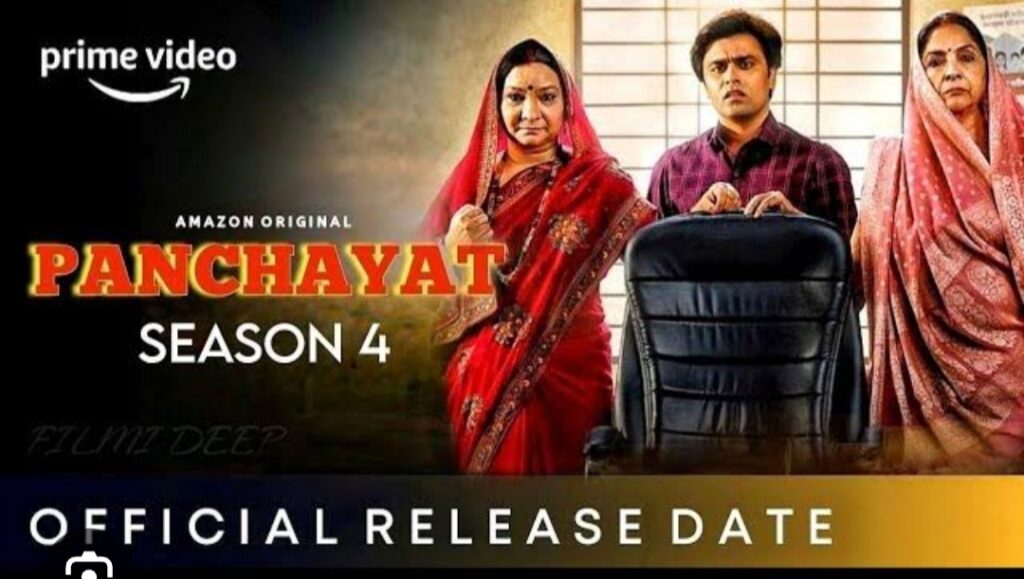In a world of high-budget thrillers and fantasy dramas, Panchayat season 4 has always stood apart for its grounded, honest storytelling. Set in the fictional village of Phulera, the show carved its niche by capturing the essence of rural India with charm, humor, and simplicity. With Season 4, the creators attempt something bolder—a deeper dive into the emotional and political chaos that brews beneath the peaceful surface of village life. The result? A season that is emotionally heavy, politically charged, and tonally more mature than any of its predecessors.
Storyline: Democracy Hits Phulera
Season 4 revolves around the much-awaited Panchayat elections. But there’s a twist—this year, the seat is reserved for women. This change sparks a fierce rivalry between Manju Devi (Neena Gupta), the familiar Pradhan-pati figurehead, and Kranti Devi (Sunita Rajwar), an ambitious challenger who is determined to shake up the status quo.
Meanwhile, Abhishek Tripathi (Jitendra Kumar), still working as the interim secretary while preparing for his CAT exam, finds himself caught in a whirlwind of local politics, emotional dilemmas, and personal growth. The election becomes more than just a plot device—it’s a metaphor for the changes sweeping through the lives of Phulera’s residents.
Character Arcs: Real, Raw, and Reflective
This season belongs not just to the main characters but to the emotional evolution of the village itself.

Abhishek (Sachiv Ji) is more than just a silent observer this time. His involvement in the election drama, his growing bond with Rinki (Sanvikaa), and his relentless pursuit of academic success add new layers to his personality. He’s more confident now but still deeply empathetic.
Rinki, often seen in the background before, comes into her own. Her relationship with Abhishek is given meaningful attention, evolving naturally and sweetly, especially as they both begin to open up emotionally.
Manju Devi and Kranti Devi represent two sides of rural womanhood—one trying to hold on to quiet authority and the other aiming to disrupt the old power structures. Their conflict isn’t just political; it’s deeply personal and symbolic of change.
Pradhan Ji (Raghubir Yadav) experiences perhaps the biggest fall. Watching him lose grip over the very seat he once ruled offers a raw and heartfelt look at what happens when influence fades and newer forces rise.
Vikas and Prahlad, although with lesser screen time, continue to offer moments of comic relief and emotional truth. The latter, especially, still grieves his son’s death in silence—a subtle but powerful thread that continues from Season 3.
Tone and Treatment: A Shift from Simplicity to Seriousness
Where the earlier seasons made us laugh with subtle village humor and simple misunderstandings, Season 4 leans heavily into drama and emotional tension. The stakes are higher, and so is the intensity. The political atmosphere brings a new seriousness to the show.
There’s less focus on laugh-out-loud moments and more on quiet, thoughtful scenes—an elderly villager questioning change, a couple sitting in awkward silence, a tense night before the election. These moments demand more from the audience, asking us not just to watch, but to feel.
Some fans might find this change jarring. The lighthearted charm that originally defined Panchayat takes a backseat. But if you view this season as a natural progression—of characters maturing, society evolving, and responsibilities becoming heavier—it starts to make sense.

Themes That Stand Out
- Power and Transition: Who truly holds power? The elected official? Their spouse? The people? These questions echo through every episode.
- Education vs. Responsibility: Abhishek’s struggle to balance his exam preparation with village duties mirrors a broader issue many young Indians face.
- Women in Politics: By focusing on a reserved seat for women, the show cleverly highlights the challenges and stereotypes women face when stepping into leadership roles in rural India.
- Love and Companionship: The growing bond between Rinki and Abhishek is delicately handled—not rushed, not dramatic, but genuine.
Performances: Every Actor Feels Like Family
Jitendra Kumar continues to bring depth and restraint to Abhishek. He doesn’t overplay emotions, and that’s his strength. Sanvikaa as Rinki is fresh, expressive, and confident.
Neena Gupta and Sunita Rajwar both shine in their roles—two strong women clashing not just for power, but for respect and recognition.
Raghubir Yadav’s subtle heartbreak, Faisal Malik’s stoicism, and Chandan Roy’s innocence add to the show’s rich character palette.
Final Thoughts: A Brave and Honest Season
Panchayat Season 4 is not your typical comfort-watch. It asks tougher questions, moves at a slower pace, and demands emotional investment. It may not have the same easy laughs as before, but it offers something deeper—a realistic portrayal of change, loss, and growth.
This season is less about what’s happening around the village and more about what’s changing within the people of the village. It sets the stage for what could be a powerful Season 5, where consequences of these elections—and of growing ambitions—will likely come to a head.
⭐ Verdict:
Rating: 4/5
Watch it if you enjoy character-driven stories and political drama rooted in realism.
Skip it if you’re looking purely for humor and escapism.
muat read – Delhi severe rainfall alert: Thunderstorms Expected Today – IMD: Thunderstorms Expected Today – IMD
atozfunda.com